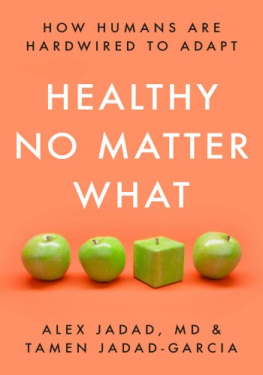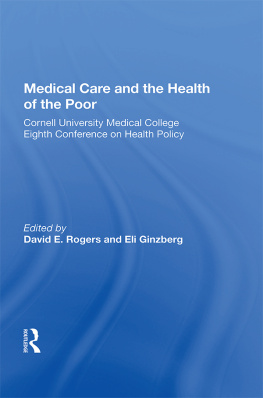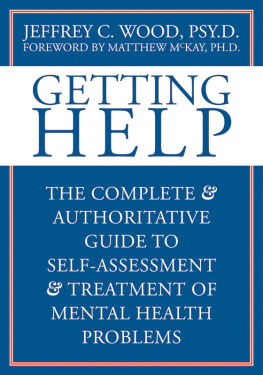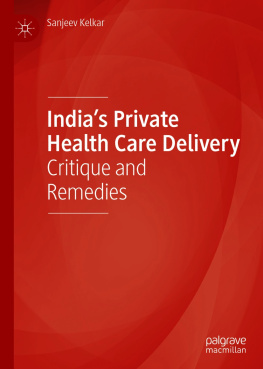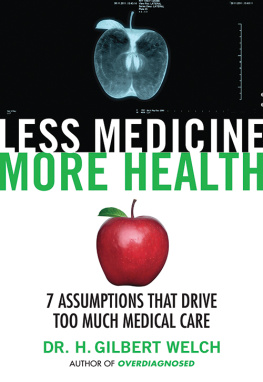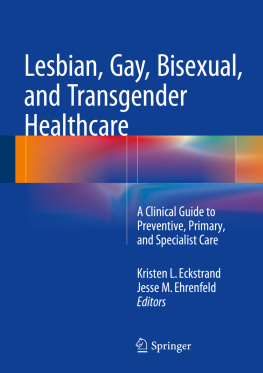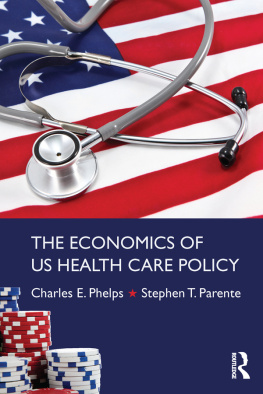Copyright 2023 by Alejandro Jadad and Tamen Jadad-Garcia
All rights reserved.
Published in the United States by Crown, an imprint of Random House, a division of Penguin Random House LLC, New York.
C ROWN and the Crown colophon are registered trademarks of Penguin Random House LLC.
Library of Congress Cataloging-in-Publication Data
Names: Jadad, Alejandro R., author. | Jadad-Garcia, Tamen, author.
Title: Healthy no matter what / Alex Jadad and Tamen Jadad-Garcia.
Description: First edition. | New York: Crown, [2023] | Includes bibliographical references.
Identifiers: LCCN 2022026398 (print) | LCCN 2022026399 (ebook) | ISBN 9780593240823 (hardcover) | ISBN 9780593240830 (ebook)
Subjects: LCSH: Health. | Health behavior.
Classification: LCC RA776 .J225 2023 (print) | LCC RA776 (ebook) | DDC 613dc23/eng/20220714
LC record available at https://lccn.loc.gov/2022026398
LC ebook record available at https://lccn.loc.gov/2022026399
Ebook ISBN9780593240830
crownpublishing.com
Cover photograph: Eoneren/Getty Images
ep_prh_6.0_142389081_c0_r0
Contents
_142389081_
F or thousands of years humans tried to fly by mimicking birds. They created all sorts of contraptions, most of which centered on the ability to flap wings. All along, they overlooked the other animals and plants that were gliding and floating around them without even having wings.
This obsessive focus on one approach is exactly what each of us has been doing to achieve a long and healthy life. We are following the wrong assumptions, oblivious to the tools that we have right in front of us and persistent despite the repeated failures.
The equivalent of flapping wings is eliminating disease. Fighting illnesses through medical interventions has been the persistent method used for millennia to achieve a healthy life. This approach has made success impossible. Even by regularly exercising, eating well, getting good sleep, and meditating, we are still only scratching the surface of the possibilities to achieve this goal.
In fact, through our studies on thousands of people, we have found that 90 percent of what people need to feel healthy is actually outside of the medical system. Yet our fixation leads us to offer medical solutions to most social and emotional problems. Someone who is lonely can easily end up with a prescription for depression.
Building on data and experiences from millions of people around the world, this book presents a view of what can make a healthy and long life possible, despite the presence of disease. It is a practical guide that condenses the best scientific knowledge and insights from medicine, psychology, and sociology, going from the microscopic to the colossal.
We also underscore that you are equipped with the versatility and the tools to overcome practically any obstacle that prevents you from being healthy. At the core of all this is your natural gift of adaptation. It combines a kind of superpower and a defense mechanism that have evolved over billions of years through a practically infinite amount of trial and error. This book introduces you to this ability and offers pointers for how to put it into action.
As you go through the book, we introduce you to your lesser-known senses and ask you questions that have a highly sophisticated predictive power, including one that could predict your prospects of living or losing 20 years of life.
We also give you words to decode, describe, and deal with practically any challenge to your health in a wide range of contexts, regardless of your cultural background or socioeconomic circumstances, all based on scientific evidence.
We will show you trees that heal, pills that are labeled as fake but still work, how big cities are the best places for living past 100 years old, and why making comparisons between you and your peers can kill you.
You will learn that as much as the traditional medical system can save lives, it can also be a hotbed of lethal threats. Recognizing that it offers 10 percent of what you need to feel healthy, we provide evidence about whether, how, and when to use it, while showing you how to get the best possible results and avoid being harmed. We will peek behind many curtains and give you access to places that are traditionally reserved for insiders.
To start, we want to bring you into an exclusive room where world leaders once gathered, unaware that they were playing a part in a greater story.

WE GOT IT ALL WRONG
D o you know anyone who has never been to the doctor, not even as a child? How many of the people in your life have back pain, depression, high blood pressure, diabetes, or cancer? The answers to these questions illustrate a problematic situation: It is practically impossible to live a life free of illness or disease.
At first glance, it seems like there is no escape. If absence of disease is a prerequisite for being healthy, then we are set up to fail. Regardless of what we do, how much we exercise or meditate, or how well we sleep or eat, it is impossible to have a disease-free life.
If the absence of disease is the cornerstone of what qualifies as health, then we are stuck with an impossible mission. A long and healthy life is completely out of reach for every single person on the planet. Indeed, this was the case up until 2008.
The Shake-Up
The temptation was irresistible. Hundreds of the most prominent leaders from the healthcare sector, including dozens of ministers of health, ministers of finance, ambassadors, and investors from across the planet, were assembled in a magnificent eastern European concert hall that had been turned into an elegant conference venue for a meeting held in June 2008. The agenda, which was specifically focused on the impact of health systems on peoples health, had just been interrupted to celebrate the 60th anniversary of the World Health Organization (WHO).
A microphone was being used by participants to express their appreciation of and gratitude for the first institution to garner the support of all members of the United Nations. The WHO was established following World War II as a way to showcase, navely, how generous and caring humans could be toward one another.
As Alex approached the microphone, he could remember how disturbed he had felt a few months earlier by a question he had been asking himself persistently. It had come to him while he was recovering from an awful medical test that had finally ruled out a diagnosis of colon cancer. This was the same question he was about to ask the entire room. It was perhaps the one for which he should have had an answer, especially given that he had been either a student, physician, or professor at some of the top medical schools in the world during the past 30 years.
When he reached the microphone, he looked at the audience, paused, and asked: What is health?
The audiences surprise quickly turned into nervous murmuring. The moderator was clearly unsettled by the change in mood. Seizing the opportunity, and using an even more emphatic tone, Alex then asked: What do we mean by health?
The room went quiet. He waited in silence. After a few more seconds, someone stood up and said something like: Doctor Jadad, the definition of health appears at the beginning of the constitution of the very institution whose 60th birthday we are celebrating today! Then the man proceeded to recite the statement that Alex had learned as a very young medical student and that had remained unchanged for six decades: Health is a state of complete physical, mental and social well-being and not merely the absence of disease or infirmity.
Following an intentionally long pause, Alex replied with a question to everyone in the room that revealed the true intention of his inquiry: Could you please raise your hand if you have complete physical, mental, and social well-being?
Next page
